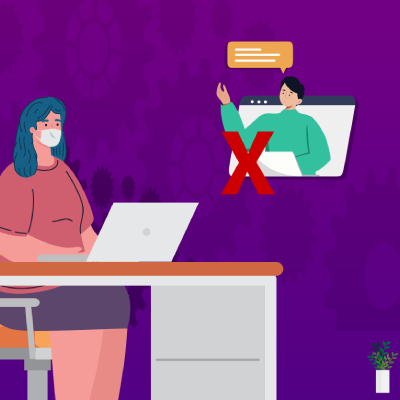Understanding Proctored Exam and How Proctoring Works

Due to technological advancement, many learning institutions are opting for online teaching. Most of these institutions are also administering exams online. In this article, we will help you understand the proctored exam and how it works. We will also explain the process of administering proctored exams and the concerns raised by many stakeholders about this new technology.
Proctored exams vs. non-proctored exams
A proctored exam is one where there are supervisors or proctors present. This is the typical type of exam where no textbooks are allowed. A proctored exam aims to see whether students understand what has been taught over a specific period. Proctored exams are very common because exams have been done in a physical class with supervisors for many years. On the other hand, a non-proctored exam is an exam where there are no supervisors. This happens in situations where students are allowed to use textbooks for reference during the exam. Over the years, proctored exams have evolved from manual supervision to online proctoring. This is because most students these days prefer learning online.
Why schools are opting for online proctoring
Many universities and colleges are opting for online proctoring for a number of reasons, with the main reason being most students are opting to study online. With most students studying online, that means that the normal exam formats have to be moved to online platforms as well.
Online exams are saving universities and colleges money. Additionally, the exams are convenient to both the students and the teachers when it comes to scheduling the exam dates. Online exams can be taken by students all over the world. This has become very good, especially for students who are parenting or working, since online proctoring allows them to take exams during convenient times.
How online proctoring works
Online proctoring works through monitoring students taking exams through a live video or recording the students taking exams to ensure there is no cheating. Before the exam starts, the online proctoring programs check whether the right students are sitting for the exam through their IDs. There is an authentication process for the same that happens online. This authentication process can either be auto authentication or live authentication.
- Auto authentication – In this process, students are required to take a photo of their ID and face and then answer specific questions. It can also happen by signing a biometric.
- Live authentication – In this method, the student ID is compared to their face.
When it's exam time, online proctoring is carried out differently. There are three methods that institutions use to carry out online proctoring. They include;
- Automatic proctoring – In automated proctoring, students' environments are monitored to capture any sound or movement.
- Recording and reviewing monitoring – In this method, the process of exam administering is recorded and reviewed after the exam completion.
- Live to proctor – In this method, the invigilator monitors students through a computer.
A cheating issue in online proctoring
Cheating is one major concern in online proctoring. That is the main reason why students' environments must be monitored to ensure that cheating is minimized. This is done by watching students on the video, monitoring their computer screens, or even requesting a video sweep of the entire room to ensure that there are no textbooks or any other materials that can be used in cheating.
How students have reacted to online proctored exams
Students have reacted differently to online proctored exams. Some feel that online proctored exams are a privacy concern in instances where their rooms have to be monitored as well as their screens. Even though others find it convenient, some students have stated that these proctored exams are invasive. Other students have stated that online proctored exams make them feel uneasy when doing their exams because of the continued watch by the proctors. They say that they are asked to do too much, such as removing items from a room and asked to have more light in their rooms for better visibility.

How to prevent cheating in online proctored exams
In online proctoring, institutions can set exams that do not need monitoring. By having exams that do not need proctoring, students can still take exams at home without needing online proctoring. There are many ways to prevent cheating on online proctored exams. They include;
- Randomizing questions – Many proctors have a hard time because students take the exams at different times. This means that a student who has done the exam earlier can pass the exam questions to other students. This can, however, be avoided by randomizing the questions. This way, students won't know the type of questions they will be asked.
- Setting a timer – Students take time to look for answers in the case of cheating. Therefore, institutions can set timers. This means that each question will have a limited time to work on.
- Come up with problem-solving questions – Students easily cheat in fact-based questions because they can easily check the facts from different sources such as the internet. This is, however, not easy with problem-solving questions. In problem-solving questions, students are asked to think critically to be able to answer the questions. The answers to the problem-solving questions are not found on the internet; therefore, students would have to rely on their knowledge to answer them. With this, online proctoring would not be very necessary.

Conclusion
This article has covered all the necessary information about proctored exams. Online proctoring is growing by the day. It became very popular during the COVID-19 lockdown. Studying at home meant taking exams at home, increasing the popularity of online proctoring. Even though online proctoring has many advantages that allow students to take their exams remotely, many students are concerned about their privacy. Most of them think the monitoring is too much and invasive. To solve this problem, we have suggested several ways that institutions that come up with exams that do not need too much supervision reduce students' privacy complaints.